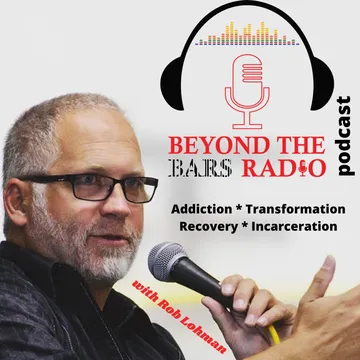MHNR Network, LLC

MHNR Network, LLC
Highly Functional: Addiction, Recovery, Prison Fellowship with Craig Deroche
Highly Functional: Addiction, Recovery, Prison Fellowship with Craig Deroche
Highly Functional: Addiction, Recovery, Prison Fellowship with Craig Deroche
Friday 9th February 2018
Hear Craig DeRoche's inspiring journey from addiction to advocacy for criminal justice reform on 'Beyond the Bars'.
50 minutes
Inspiring
Empowering
Informative
Hopeful
Compassionate
About this podcast
Author:
MHNR Network, LLC
Overview:
Categories:
Sobriety Toolkit
Innovative Treatments & Recovery Paths
Family Recovery from Addiction
Body & Mind
Creative Recovery Journeys
Links:
Visit site
Episodes:
110 (View all)

Do you want to link to this podcast?
Get the buttons here!Craig DeRoche: From Addiction to Criminal Justice Advocate
It's important to not let shame stop you from seeking help. The greatest stories in the Bible are about people who have made terrible mistakes and yet found redemption.
Craig DeRoche’s journey from the depths of addiction to becoming a leading voice in criminal justice reform is nothing short of remarkable. As the Senior Vice President of Advocacy & Public Policy at Prison Fellowship, DeRoche’s story is a testament to resilience and the power of second chances. This episode of 'Beyond the Bars' takes you through his highs and lows, starting from his days as the youngest Republican statewide leader in the U.S.
to his public fall from grace due to alcohol-related arrests. DeRoche opens up about his struggles with alcoholism, which led to his arrests and eventually his path to recovery. His turning point came after attending a national forum on addiction where he was introduced to Prison Fellowship and its founder, Chuck Colson. This encounter changed his life, steering him towards advocacy and reform.
In this candid conversation, DeRoche talks about the broken criminal justice system and the need for policies that focus on rehabilitation rather than punishment. He emphasizes the importance of addressing root causes like addiction, poverty, and trauma. He also highlights the significant hurdles faced by individuals with criminal records, such as finding employment and housing. One of the most touching parts of the episode is DeRoche’s discussion on the transformative power of faith and forgiveness.
He shares poignant stories, including one about a mother whose advocacy helped her son receive treatment instead of prison time. DeRoche believes that everyone deserves a second chance and underscores that some of the greatest stories of redemption come from people who have made grave mistakes. For anyone touched by addiction or interested in criminal justice reform, this episode offers both hope and practical insights.
Craig DeRoche’s story is a powerful reminder that change is possible, and advocacy can lead to meaningful reform.
